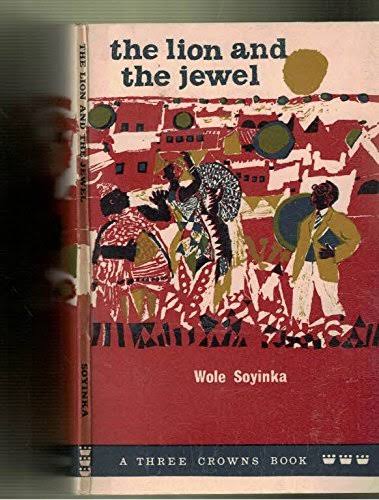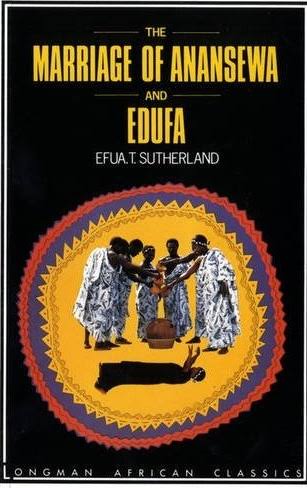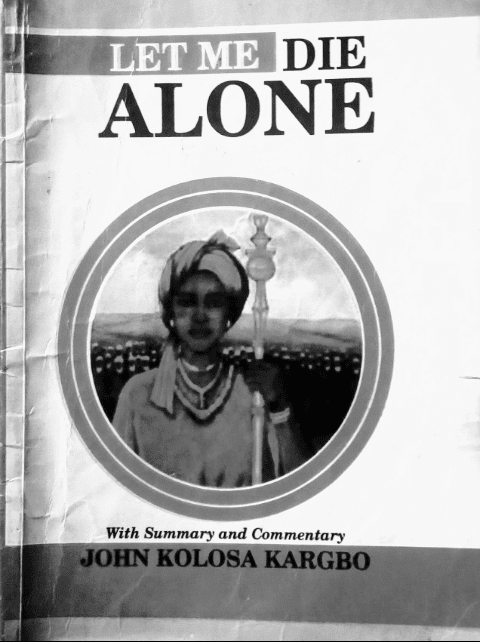Sidi is one of the principal characters in Wole Soyinka’s The Lion and the Jewel. She is the protagonist heroine in the play. Unlike Lakunle who is a static character, Sidi is a dynamic character in that she underwent changes in the play.
Who is Sidi?
Sidi is the village belle. She has a mesmerising beauty that attracts a larger chunk of the male world (Lakunle, Baroka and the Stranger) to her. At the beginning of the play, Sidi is seen with a pot of water on her head returning from the stream. She is approached by Lakunle, the village teacher who we learnt has been making advances at her. She fends off Lakunle’s weird ideas and mannerisms put under the pretext of “modernism”.
At first, she is willing to marry Lakunle if only he would pay her bride price. But Lakunle makes it obstinately clear that he would not pay her bride price. So, Sidi withholds her willingness and refuses to marry Lakunle.
Sidi becomes vainglorious upon the arrival of the magazine which portrays her beauty in glossy pages. Her ego becomes bloated that she began to see herself as above Lakunle (an ordinary village teacher) and Baroka (whose goaty picture is placed side by side with the village latrine) in order of social importance. Her pictures have gotten to Lagos. So, she is important than everyone else in the village.
When Baroka conveyed his interest in her through Sadiku, she rejects his marriage proposal. Baroka in turn tricks Sadiku and Sidi into believing that he had become impotent. Sidi falls for Baroka’s bait and in the long run, she ends up in Baroka’s bed where the older man used his cunningness and sweet words to take away her pride: her virginity.
She cries and runs home to Lakunle and Sadiku. The duo gets a wind of the event. When Lakunle learnt of what happened to Sidi, his love for Sidi wavers. He decides to accept her all the same since her loss of virginity would save him the bride price anyway. Sidi however thinks differently. She is going to marry Baroka. She has felt the aging man’s strength and would not subject herself to the humiliation of taking an immature book-nourished shrimp like Lakunle. She takes Lakunle by surprise when she got rid of the glossy magazine and announced her decision to marry Baroka.
Lakunle contests her decision and in the drama that followed, Sidi pushes Lakunle off and berates Lakunle in her biting comparison of Lakunle and Baroka where she portrayed Lakunle as the weaker one.
At the end of the play, Sadiku initiates Sidi into Baroka’s household. Sidi’s discard of the glossy magazine symbolises her parting with the vainglorious modern life.
Comparison between Baroka and Lakunle from Sidi’s Perspective
SIDI: [turns round in surprise.]
Marry who . . .? You thought . . .
Did you really think that you, and I . . .
Why, did you think that after him,
I could endure the touch of another man?
I who have felt the strength,
The perpetual youthful zest
Of the panther of the trees?
And would I choose a watered-down,
A beardless version of unripened man?SIDI: [gives him a shove that sits him down again, hard against the tree base.] Out of my
way, book-nourished shrimp.
Do you see what strength he has given me?
That was not bad. For a man of sixty,
It was the secret of God’s own draught
A deed for drums and ballads.
But you, at sixty, you’ll be ten years dead!
In fact, you’ll not survive your honeymoon . . .
Come to my wedding if you will. If not . . .
The first quotation is Sidi’s reaction to Lakunle’s marriage taunt. The second quotation is Sidi’s reaction when Lakunle fell after she gave him a shove.
From the foregoing, we are able to arrive at the following conclusion: Baroka is “the panther of the forest with perpetual zest of youth” while Lakunle is “a watered down, beardless version of unripened man”. Baroka is “the secret of God’s own draught”, “a deed for drums and ballads” while Lakunle is “book-nourished shrimp”. The descriptions clearly show Baroka as a man with the strength and zeal of a youth despite his advancing age and Lakunle as lacking in Baroka’s strength. Sidi in the end chooses Baroka’s touch and strength over Lakunle’s knowledge and bookish ideas.
The Role of Sidi in THE LION AND THE JEWEL
To start with, Sidi is the symbolic “jewel” in the title of the play and there are several instances in the play where she either calls herself or is called the jewel on the account of her mesmerizing beauty. She is the centre of attention in the play and all events in the play revolve round her. From Lakunle’s wooing attempts, the stranger’s entry into the village, the glossy magazine incidence, Baroka’s trickery, her loss of virginity, to her initiation into Baroka’s household.
She is the bone of contention between Baroka and Lakunle. Each man wants Sidi to be his. She may also be described as a blend of modernity and tradition. She is a product of Lakunle’s lofty ideas and the village’s customs. However, she does not embrace Lakunle’s ideas in their totality. She is also mindful of the dictates of the African tradition. That’s more reason she insists on her bride pride when Lakunle persisted with his amorous advances.
She is a good organizer. This is evident in how she stage-managed the mimetic recollection of the stranger’s circumstantial entrance into the village. The readers also owe her much credit for insight into the character of Lakunle and Baroka. Much of what we know about these two characters happens to come from Sidi’s dialogue with the two. Lakunle’s imbecility and Baroka’s cunningness are displayed in words and motions in her encounter(s) which each one of them.
 WHATSAPP: Click HERE to join the new Literature PADI WhatsApp group to receive latest updates on your phone and for further literary discussions!
WHATSAPP: Click HERE to join the new Literature PADI WhatsApp group to receive latest updates on your phone and for further literary discussions!










